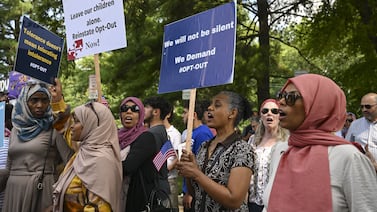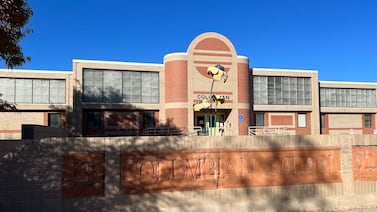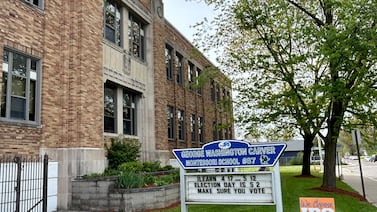Two Tennessee lawmakers have filed a bill aimed at purging books and other materials deemed “obscene or harmful to minors” from school libraries.
But several of the professional groups representing librarians across the state say districts already have processes in place to reconsider textbooks and materials that are flagged as objectionable.
“We feel that current school district board policies, when followed, adequately address concerns raised by parents or guardians about books,” said a Friday statement from the Tennessee Association of School Librarians.
The bill, filed this week by Republican Rep. Scott Cepicky of Culleoka and Sen. Joey Hensley of Hohenwald, would apply to public schools, including charter schools.
The proposal comes amid a national wave of book challenges, especially in politically conservative states like Tennessee, where individuals or groups are seeking to remove or restrict access to children’s and young adult books that they say contain pornography or other content deemed unwholesome.
Federal law strictly prohibits distribution of obscene material to minors.
In Texas and South Carolina, Republican governors have called for action against “obscene” content in school libraries, while school leaders in Missouri, Virginia, and Florida have pulled materials, including some award-winning books, after receiving complaints over a range of concerns.
Tennessee is a growing hotbed of complaints.
Earlier this month in East Tennessee, McMinn County’s school board voted to remove “Maus,” a Pulitzer Prize-winning graphic novel about the Holocaust, from its required reading list for eighth-graders. Minutes of the Jan. 10 meeting cited “inappropriate language” and an illustration of a nude woman.
Moms for Liberty, a conservative nonprofit group that originated in Florida, has targeted materials through its local chapter in Williamson County, near Nashville. Members of that group have used the public comment period of recent school board meetings to read excerpts they found objectionable.
And, John Rich, a well-known country music singer and conservative activist with a large Twitter following, tweeted about meeting this month with Gov. Bill Lee and Education Commissioner Penny Schwinn to discuss materials “that our kids are being exposed to containing obscene and pornographic content.”
Cepicky declined Friday to comment about his bill, which has 22 co-sponsors in the House. Hensley did not respond to a request for an interview.
Rep. Vincent Dixie, who chairs the House Democratic Caucus and sits on several education committees, mentioned the bubbling issue Friday when delivering an online speech for his party in advance of the governor’s State of the State address on Monday.
“Instead of fighting over which books can be in the library, let’s fight to provide every classroom with high-quality books and materials their students need to learn,” said Dixie, of Nashville.
A key question is how to define what materials cross the line.
“Even the Supreme Court has had trouble defining what obscenity is and, if the Supreme Court struggles with this, then the school boards statewide will have even more trouble,” said Mark Finchum, executive director of the Tennessee Council for the Social Studies, which represents social studies teachers across the state.
The push to ban books in America also targets many materials that affront conservative sensibilities regarding race and gender.
Last spring, Tennessee lawmakers passed legislation to prohibit classroom discussion in public schools about certain concepts about race and structural racism. And many of the books being removed from curricula deal with race, according to the list of the 10 most challenged books compiled by the American Library Association’s Office for Intellectual Freedom.
Another Republican bill, which was filed last year and is still alive, seeks to limit which supplemental teaching materials can be used in the classroom.
Last fall, three key Tennessee library organizations criticized censorship of books in school libraries.
“We oppose censorship within school libraries on the grounds that it is unconstitutional and contrary to the professional ethics of librarianship,” said a statement from the Tennessee Association of School Librarians, the Tennessee Library Association, and Friends of the Tennessee Libraries.
“Every book is not for every reader, but every child should have access to books they may want to read,” last fall’s statement said.
Erika Long, a Nashville school librarian and past president of the Tennessee Library Association, said this week that the groups issued the statement to respond to “the increasing number of challenges and bans happening across the country.”
“We wanted to make sure we addressed what is happening,” she said.
The bill filed this week cites a section of a Tennessee obscenity law that defines material “harmful to minors” as “that quality of any description or representation, in whatever form, of nudity, sexual excitement, sexual conduct, excess violence or sadomasochistic abuse when the matter or performance:
(A) Would be found by the average person applying contemporary community standards to appeal predominantly to the prurient, shameful or morbid interests of minors;
(B) Is patently offensive to prevailing standards in the adult community as a whole with respect to what is suitable for minors; and
(C) Taken as whole lacks serious literary, artistic, political or scientific values for minors.”
You can track the legislation here.





